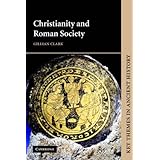
Average Reviews:

(More customer reviews)This book is describes ancient inventions and construction projects predating 1492. It is well researched, documented, and illustrated.
There is an assumption with some that earlier humans were rustic simpletons. This book dispels that notion. It describes everything from the mundane (wine, cosmetics), to the grandiose (an early Suez Canal), to the dangerous (trepanning, i.e. drilling holes in one's head as an early form of surgery), to the practical (mills, weapons, paper). One of the strangest discoveries is of a cave that is made to resemble hell.
In addition to the expected inventions from Egypt, Greece, and Rome inventions from all over the world are represented including ones from South America, China, and ancient Scythia the area where modern Ukraine is found. Inventions from that area include the earliest form of shelter (mammoth bone huts), domestication of horses, the earliest melodic musical instruments (flutes), maps, trousers, jewelry, ovens, houses, soap, and saunas (in which hashish was thrown on hot stones).
This is a feel-good book. It documents the creativity and imagination of humans.
Click Here to see more reviews about:
Ancient Inventions Get 32% OFF
Get 32% OFF
Click here for more information about Ancient Inventions











